
My first experience of walking into the Cast Halls of the Pennsylvania Academy of the Fine Arts (PAFA) in Philadelphia as a student was accompanied by the feeling that I had walked into the Renaissance. Though I had yet to understand the uses of that fine collection of early plaster casts, I felt as if I was in a space that encouraged reason, reflection and hope as a young artist.
As the first academy of art in the United States, conceived of as early as the 1790s and chartered in 1805, the drawing curriculum at PAFA incorporates the concepts and tools of cast drawing as part of a solid grounding for the artist to this day. The founders’ first act was to purchase fine casts from Paris and Florence for the teaching of drawing. That historic collection is an integral part of the teaching of drawing and form at PAFA today. Cast drawing remains a source and support of critical thinking and practical visual tools.
One of the earliest references to cast drawing as a tool for training artists was made in Leonardo da Vinci’s A Treatise on Painting. Though scholarly debate and speculation suggests that Leonardo may have founded the first Academy of Art in Milan during his lifetime (he died in 1519), the first formal Academy of Art – the Accademia del Disegno – was created in Florence by Georgio Vasari in 1561. Followed rapidly by the founding of numerous academies, royal academies and state-sponsored schools of art in Europe and the United States, cast drawing was always an integral part of the art school curricula until well into the 19th century.
Bu hikaye Artists & Illustrators dergisinin December 2020 sayısından alınmıştır.
Start your 7-day Magzter GOLD free trial to access thousands of curated premium stories, and 9,000+ magazines and newspapers.
Already a subscriber ? Giriş Yap
Bu hikaye Artists & Illustrators dergisinin December 2020 sayısından alınmıştır.
Start your 7-day Magzter GOLD free trial to access thousands of curated premium stories, and 9,000+ magazines and newspapers.
Already a subscriber? Giriş Yap

Still life IN 3 HOURS
Former BP Portrait Award runner-up FELICIA FORTE guides you through a simple, structured approach to painting alla prima that tackles dark, average and light colours in turn
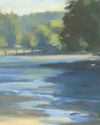
Movement in composition
Through an analysis of three masterworks, landscape painter and noted author MITCHELL ALBALA shows how you can animate landscape composition with movement
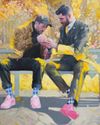
Shane Berkery
The Irish-Japanese artist talks to REBECCA BRADBURY about the innovative concepts and original colour combinations he brings to his figurative oil paintings from his Dublin garden studio

The Working Artist
Something old, something new... Our columnist LAURA BOSWELL has expert advice for balancing fresh ideas with completing half-finished work

Washes AND GLAZES
Art Academy’s ROB PEPPER introduces an in-depth guide to incorporating various techniques into your next masterpiece. Artwork by STAN MILLER, CHRIS ROBINSON and MICHELE ILLING
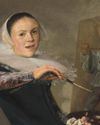
Hands
LAURA SMITH continues her new four-part series, which encourages you to draw elements of old master paintings, and this month’s focus is on capturing hands
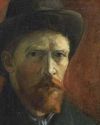
Vincent van Gogh
To celebrate The Courtauld’s forthcoming landmark display of the troubled Dutch master’s self-portraits, STEVE PILL looks at the stories behind 10 of the most dramatic works on display
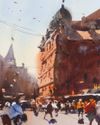
BRING THE drama
Join international watercolour maestro ALVARO CASTAGNET in London’s West End to paint a dramatic street scene
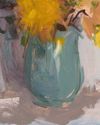
Serena Rowe
The Scottish painter tells STEVE PILL why time is precious, why emotional responses to colour are useful, and how she finds focus every day with the help of her studio wall

Bill Jacklin
Chatting over Zoom as he recovers from appendicitis, the Royal Academician tells STEVE PILL about classic scrapes in New York and his recent experiments with illustration